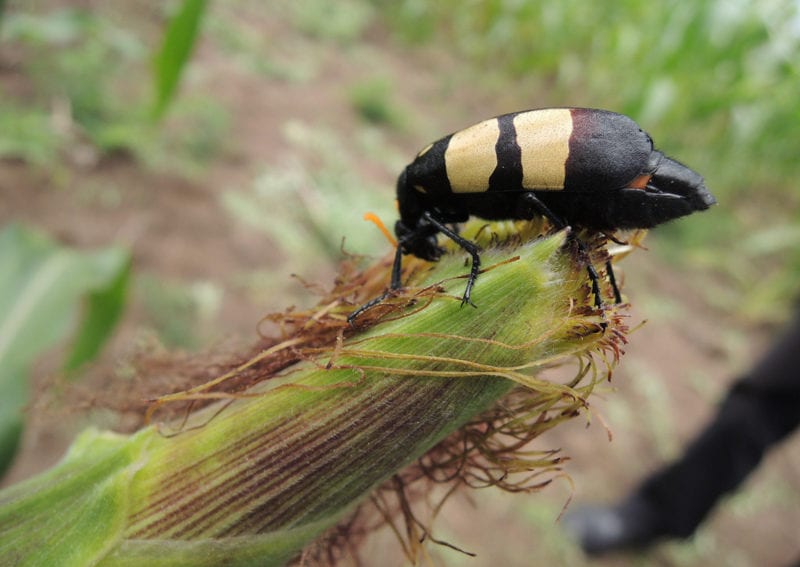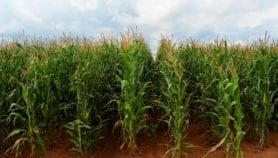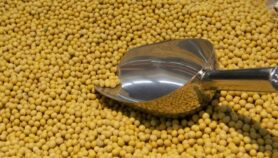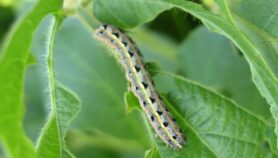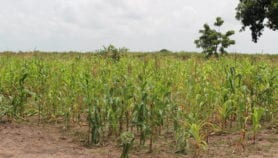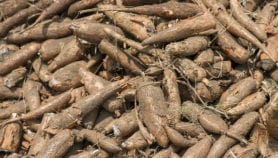By: Farai Matebvu
Send to a friend
The details you provide on this page will not be used to send unsolicited email, and will not be sold to a 3rd party. See privacy policy.
[MUTARE, ZIMBABWE] Contrary to the concern that genetically modified (GM) maize may have adverse impacts on biodiversity, a new study in South Africa indicates that it has no negative effects on the environment.
GM maize has been engineered to produce a toxin that kills specific target pests when they feed on the leaves of the plant. Farmers do not need to apply insecticides against stalk borer pests of maize because the plant is able to protect itself.
But whether GM maize could adversely affect non-target arthropods — insects and related species — has largely not been explored in Africa, according to the researchers from South Africa.
“The fact that biodiversity is high means that there is no danger associated with growing the GM maize. High biodiversity means it is good.”
Johnnie van den Berg, North-West University, South Africa
The researchers randomly selected a total of 480 maize plants — 240 GM maize and 240 non-GM maize from two different locations: smallholder and commercial farming systems in South Africa. They collected a total of 8,771 arthropods at two different growing seasons in both farms during the two-year study that began in 2008 and compared the biodiversity of arthropods at the two locations.
The study, published in the February issue of Environmental Entomology, showed that the biodiversity of arthropods in both subsistence and large-scale farming systems was high without significant differences.
Johnnie van den Berg, the study’s co-author and professor of North-West University, South Africa, tells SciDev.Net that GM maize did not affect the abundance and diversity of arthropods.
The abundance of diverse insects in GM crop fields will not endanger maize growing in both GM and conventional maize fields, van den Berg explains.
“The fact that biodiversity is high means that there is no danger associated with growing the GM maize. High biodiversity means it is good,” he says. “This type of study and its results are important for regulators of GM technology, and together with many other factors, they use it when they make decisions on whether to release GM crops in a particular country.”
He adds that their findings provide useful information that could help African governments decide on adopting the technology, citing Egypt and South Africa as the only African countries currently growing GM maize.
But van den Berg warns that although the short-term study showed no adverse effects on the environment, GM maize may cross-pollinate with other maize varieties planted by neighbouring farmers, leading to resistance development of target pests which have not been considered carefully in Sub-Saharan Africa.
Godfrey Mamhare, a Zimbabwe-based senior agronomist and provincial extension officer at Manicaland regional agricultural extension services, says the study’s findings are complicated and do not adequately persuade African farmers to grow GM maize.
“Africa is calling for indigenous solutions to produce cereals for human consumption. Indigenous knowledge systems are crucial to increasing maize production in Sub-Saharan Africa rather than artificial breeding,” he adds.
Link to study abstract in Environmental Entomology
This article has been produced by SciDev.Net's Sub-Saharan Africa desk
References
Environmental Entomology doi10.1603/en12177 (2014)


